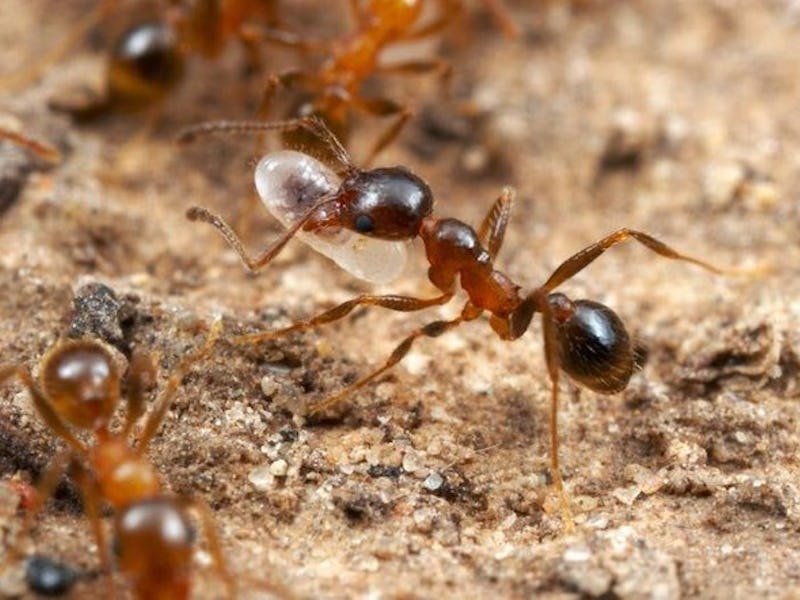The Ant Ages but Never Gets Old
A team from Caltech recently kept tabs on an insect that seemingly stays spry from birth to death.

A researcher from the California Institute of Technology, Pasadena, CA has been studying an ant that doesn’t seem to age.
Ysabel Giraldo, Ph.D. was the lead author on the recently published paper “Lifespan behavioural and neural resilience in a social insect”, in which documented the Pheidole dentata ant (AKA the “Big-headed ant”), native to the U.S southeastern regions. Giraldo’s work did not determine immortality, as the insects usually live no more than 140 days — but, as witnessed, the creatures don’t seem to age — as in older workers can perform tasks as efficiently as younger specimens.
Just as humans do, most animals age as they get older, showing signs of deterioration. The social P. dentata does not — as it lives in a social setting, Giraldo speculates that it could be the interaction that aides in healthier aging — a concept that has been mentioned in previous studies. Giraldo tells Smithsonian, “Maybe the social component could be important … This could be a really exciting system to understand the neurobiology of aging.”
Sorting the subjects into four age ranges — at approximately 21 days old, 46 days, 96 days and 121 days — and as she and her Caltech team tracked each ant from its hatching, ages were confirmed.
The ants performed their expected tasks — nurturing larvae — and engaged in typical behavior, such as following the scents used to mark trails to food sources. The insects were monitored for frequency of motion, response to light, and reaction to the presence of live prey — in this case, a secured fruit fly.
The findings demonstrated no diminishment in the older ants. Furthermore, the ants roughly 96 days of age (95-97) actually showed a better ability to track scents. All responded to light equally, and, as for the fruit fly, all were equally aggressive in attack.
A following step involved studying the actual brain cells of subjects, and whether age 20-days or 95-days, there was no clear difference — indicating brain functions seem ageless as well.
Then the researchers compared the brains of 20-day-old and 95-day-old ants, identifying any cells that were on the verge of dying. They saw no major differences with age, nor was there any difference in the location of the dying cells, showing that age didn’t seem to affect specific brain functions. Such intelligence measures as memory, information processing, and learning all showed no sign of damage due to age.
The only aspect the Caltech team did not focus on was if death was followed by a fast decline in faculties, as Giraldo explained her study wasn’t intended to keep such watch. However, her study did afford a look at how P. dentata was able to live, and, in the controlled setting, free from predators and other elemental threats, �������������������������������how long P. dentata was able to live.
Says Giraldo: “We really get a picture that these ants — throughout much of the lifespan that we measured, which is probably longer than the lifespan under natural conditions — really don’t decline.”